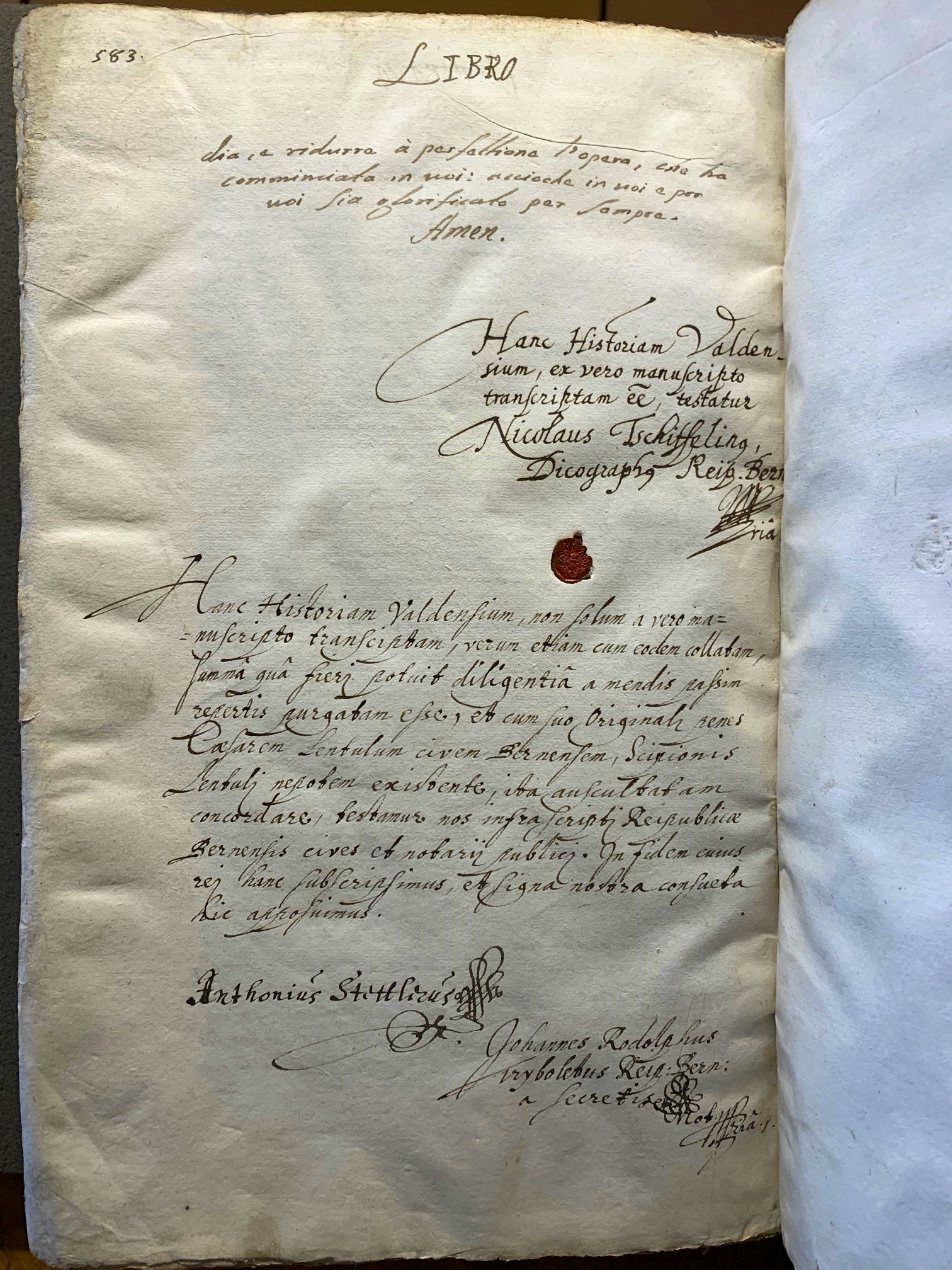Unimpressed By Fake News

In 1635, the learned Irish Archbishop James Ussher heard of a unique historical work that existed in a single manuscript copy in Bern. Scipio Lentulus, a Neapolitan-born Carmelite friar later converted to the Protestant faith, had completed his Historia delle grandi e crudeli persecutioni contra il popolo che chiamano Valdese in 1595. For Ussher, the Waldenses, a controversial reformed community in the French and Italian Alps, embodied his idea of a Protestant continuity of martyrs and witnesses. To document this alternative to the Catholic narrative of apostolic succession, "Ussher compiled and bought up all the manuscripts of the Waldenses", as Samuel Hartlib noted. He also asked his protégé, the young Basel scholar Johann Jacob Frey, to have Lentulus' Historia copied. This copy was authenticated by Niklaus Tschiffely, the Clerk of the Republic of Berne, and survives in the Bodleian Library in Oxford.
There is one significant difference between the two manuscripts: Book VIII of the Historia is missing in the Berne copy. This section of the work contains a passionate critique of excesses which Lentulus had witnessed in his small Piedmontese mountain parish, including "incest, depravity, unbridled lust and licentiousness". Lentulus blamed the Waldensian community's sufferings on this sinfulness, which is problematic because such accusations were regularly used by outsiders as a generic excuse for horrible persecutions of the Waldensians. The Berne professor Christoph Lüthard, who was involved in the production of the manuscript copy for Ussher, was worried and wrote to Frey that after Ussher's death the History might possibly pass into the hands of other people, who would either accuse the Archbishop of having falsified the history if he left these facts out, or in turn make them publicly known to the detriment of the Waldensians, as they wish.
However, Lüthard left the final decision to his young Basel colleague, and Johann Jacob Frey took it with considerable intellectual generosity. He decided that the Historia "castigates the vices of the Waldensians, but not their faith" and so he could not "see what damage may arise from publishing the History in its present form". This openness of mind is quite remarkable and turned out to be very important: later in the 17th century, somebody gripped by the worries that troubled Christoph Lüthard tore out Book VIII from the manuscript in Bern. If James Ussher had not ordered a copy to support his ecclesiological theses on the apostolic succession through the martyrs, and if Johann Jacob Frey had been as easily frightened as his Berne colleague, Book VIII of the Historia of the Waldensians would now be lost.
Alessandro Lattanzi and Regula Hohl Trillini